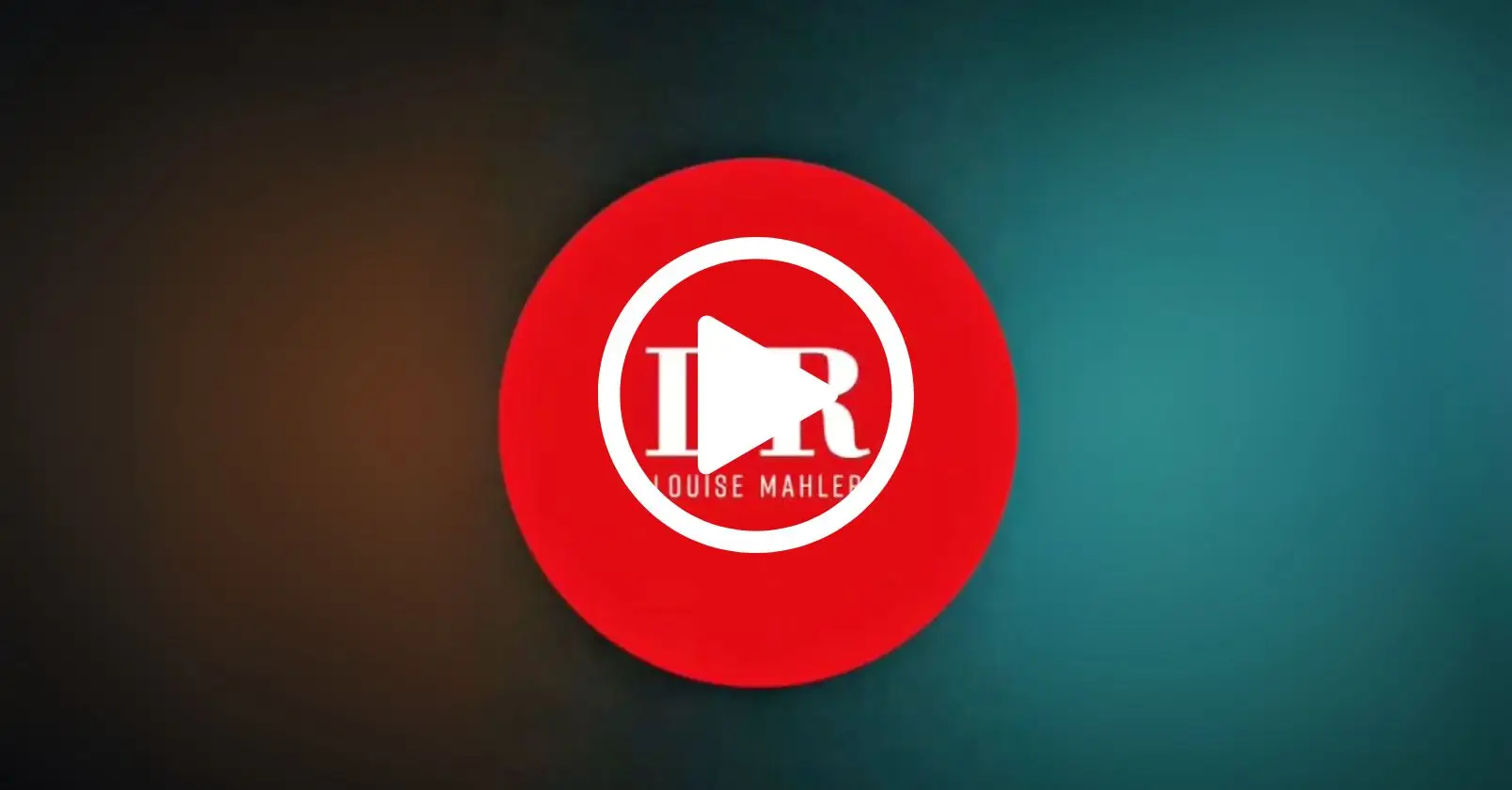The word ‘I’
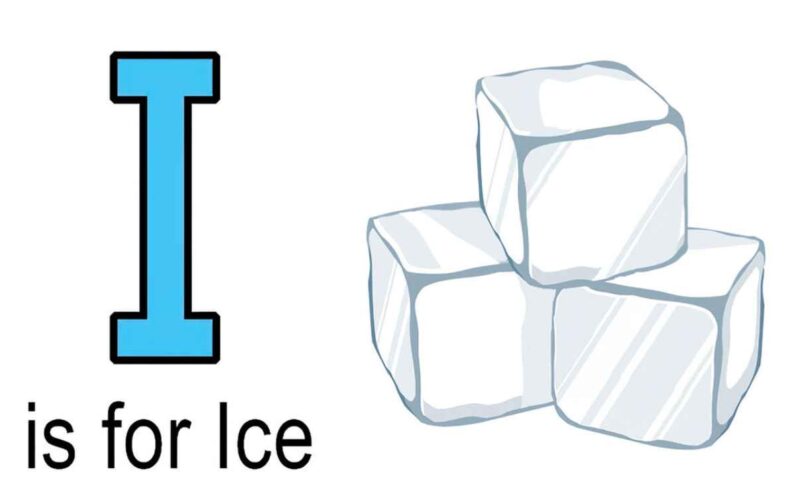
This morning I read an interesting article about the The Smartest CEOs in the United States. What was fascinating was they also measured the least intelligent CEOs. Who wants to be on that list!! And there’s more. . .
Using a program call Preply, researchers analysed hours of dialogue from over 100 American executives, examining common linguistic patterns and one of those measurements was the use of the word ‘I’.
Using the word ‘I’ apparently depicts intelligence but not emotional intelligence. Of course, this all begs the question about whether you can actually measure intelligence at all and how seriously you can take these results (so, those on the ‘least intelligent’ list need not panic), but one thing is for certain, using the word ‘I’ in presentation is a poor choice.
The word ‘I’ has three problems. It is immediately ostracising, sets up a ‘me vs you’ scenario and it does nothing for the stress of the speaker who feels the focus is on them.
After years in this profession, I noticed a failing common pattern in Australia that is rife. It goes like this:
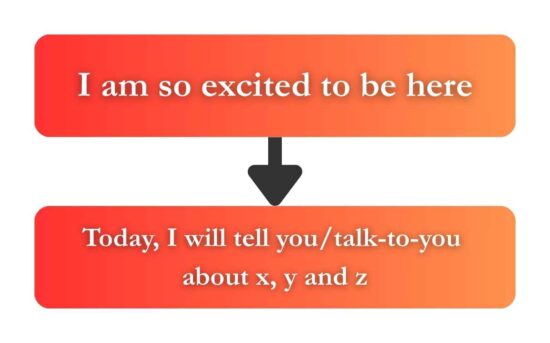
There are several things that are concerning about this:
- No one cares how excited you are
- The use of the word ‘I’ immediately separates you from the audience
- The use of the word ‘I’ again, followed by the words ‘tell’ or ‘talk’ is a one-way street of communication, again setting up a distance with the listener.
No wonder people reach for their phones.
The interesting thing is that so many people use this pattern, it has become a national standard and because we hear it we think it works. It doesn’t.
Of course, no one goes to jail for using a non-effective pattern, but let’s think about what we could say. A better pattern may be to:
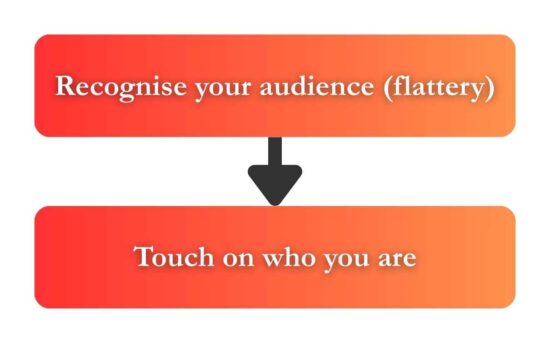
Adding the words, this may literally be something like:
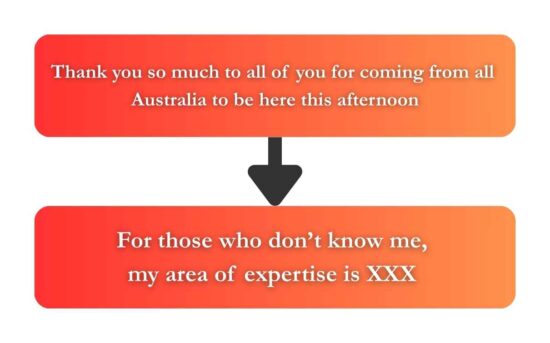
I don’t make political statements, but analyse people in the media and two examples that stand out for me are Taylor Swift at each of her concerts and American Vice President Vance in the Vance/Walz US election.
When Taylor Swift was in Melbourne, she began with gushing flattery. Quite literally (I copied it down), she said:
“Beautiful, stunning, passionate Melbourne. Look at you. Absolutely phenomenal”
She turned immediately to the audience and made it about them. There was no ‘I’ statement.
Now I wouldn’t want you to say anything like that to a business audience, but listen to Vance in the US debate. While Walz began by attacking the question, Vance, on the other hand, began by following a flattery followed by self introduction pattern. Listen on the recordingfrom the points 5:30 to 6:40.
Fascinating! And again I state there is no comment here about my affection for Taylor Swift or any support of his politics of Vance or comment on his excellence, or lack of it in any other situation, just observation on their speech patterns at that particular moment in time.
Changing your pattern of speech can be the hardest thing psychologically, but I beg you to think about it both from the perspective of the audience and also for your own peace of mind.
Let me know your thoughts.

What has been happening…
Gravitas Masterclass 27th March 2025
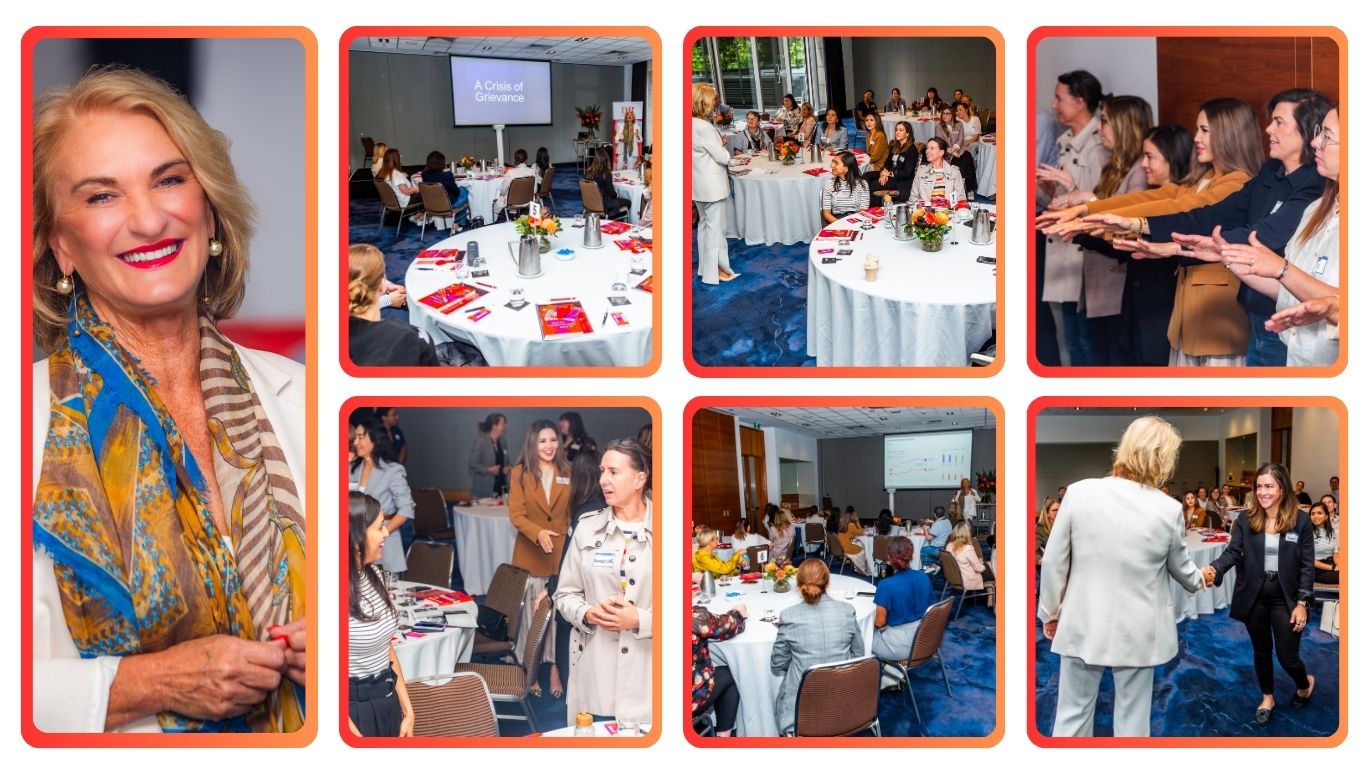
Join my exclusive 3-day retreat, 20th – 22nd August 2025 at the stunning Gold Coast Imperial Hotel

Date: Wednesday – Friday, 20th – 22nd August 2025
Location: The Imperial Hotel Gold Coast (previously Versace Hotel)
My Confident Leader Retreat take place over 3 days 2 nights with a focus on helping leaders build their executive presence and hone their own unique gravitas within a small group setting.
As well as confidence and skills development, those attending forge an invaluable network, sharing opportunities and forming lifelong friendships.
Transform your executive presence, collaborate with other senior leaders and stay ahead.




